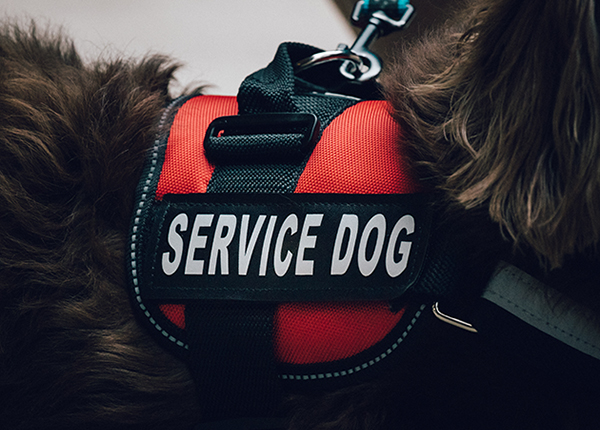Often time’s landlords are reluctant when leasing property to pet owners. No matter what policy the landlord decides, by law they must make an exception when approved applicants have a service animal or documented assistance animal. By making an exception, that means not charging pet fees, pet deposits, and making reasonable accommodations for the individual and service animal.
There are many good reasons to be familiar with these guidelines. Following the law is the biggest factor, knowing these guidelines will also help in detecting fraud when applicants claim to have a service animal. It’s no secret that applicants will often present their pet as a service animal to avoid paying fees and pet deposits. It should be a priority from all of us to maintain the integrity of service and support animals for the individuals that need it.
January 28, 2020 the US Department of Housing and Urban Development (HUD) released their updated guidelines for “Assessing a person’s request to have an animal as a reasonable accommodation under the Fair Housing Act (FHA).” (Download PDF Here.)
This notice provides best practices for complying with the FHA.
There are two sections to this notice.
- Assessing a Person’s Request to have an animal
- Guidance and documenting the need for assistance animals
Something to remember when assessing a person’s request. Assistance animals are not pets. Animal is the proper term to use. They are animals that do work, perform task, assist, and/or provide therapeutic emotional support for individuals with disabilities.
There are two types of animals covered in the HUD Notice.
- Service Animals
- Support Animals, also referred to as Assistance Animals
60% of FHA complaints received are concerning denial of reasonable accommodations and disability access. The most common are request for reasonable accommodations involving service and assistance animals.
What is a Service Animal?
Under the ADA service animal means, “any dog that is individually trained to do work or perform tasks for the benefit of an individual with a disability, including a physical, sensory, psychiatric, intellectual, or other mental disability. Other species of animals, whether wild or domestic, trained or untrained, are not service animals for the purposes of this definition.
What can I ask regarding support animals?
These are the recommend assessments to help determine if an animal is a service animal under the ADA.
- Is this animal a dog?
- Is it readily apparent that the dog is trained to do work or perform tasks for the benefit of an individual with a disability?
After the above assessment, housing providers are advised to ask only the two following questions:
- Is the animal required because of a disability*?
- What work or task has the animal been trained to perform?
*Never ask about the nature or extent of a person’s disability.
There are additional best practices in the HUD notice depending on how these questions are answered. Following HUD’s guidelines will reduce your liabilities tremendously. This means if a person tells you their snake is a service animal, you can refer to the ADA definition of a service animal, which explains it is not.
How are support animals determined?
There are many places an applicant can go online and print documents stating they have a support animal. Documents should be from a doctor’s personal assessment. They should have personal knowledge of the patient and the details of the disability to make a determination. If a person pays a fee for this documentation over the internet with no doctor/patient relationship, that documentation may be rejected.
Best practices include asking the following questions to the documentation provider:
- The patients name
- Whether the health care professional has a professional relationship with that patient/client involving the provisions of health care disability related services
- The type of animal(s) for which reasonable accommodation is sought
- Date of last consultation
There are many examples in the HUD 2020 notice that can help you become more familiar with the best practices. I encourage you learn it, and reduce your liabilities. New services such as PetScreening.com will take on the liability and provide housing providers with an assessment of service animals and assistance animals.
Source: Jason Waggoner has worked at ACUTRAQ since 2008 helping property managers and real estate brokers maintain compliance and increase efficiency.


